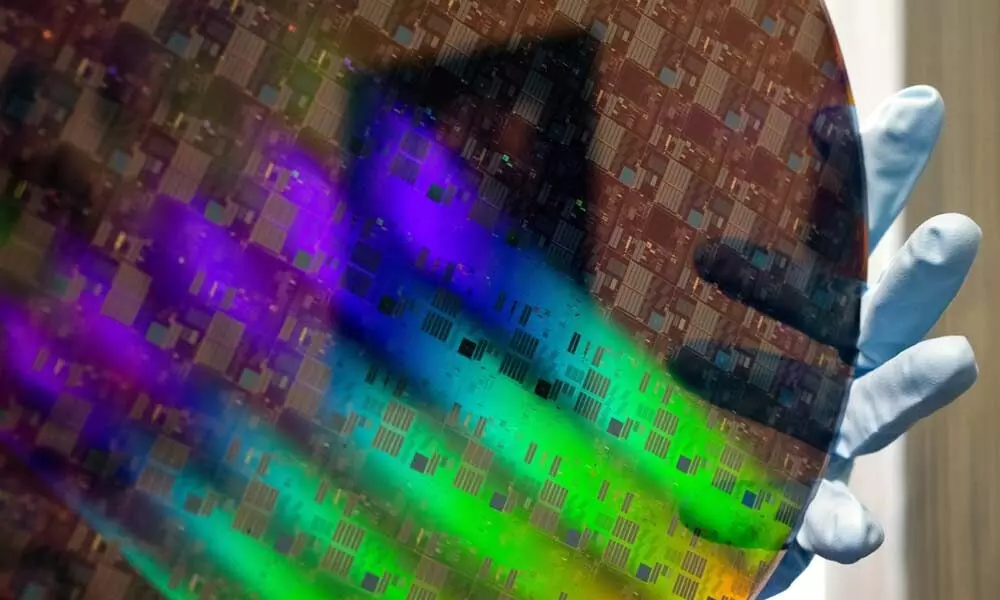Want a new factory to make car chips? That'll be $4 bn
It isn’t hard to see why chipmakers - currently racing ahead towards much more advanced and expensive technology (indeed, some for driverless cars) - aren’t going to be splashing out billions of dollars to fill the current, old-tech void
image for illustrative purpose

Starting from scratch with new fabs is a prohibitive solution to the current shortage of car semiconductors. Are government subsidies the answer?
No one really wants to make the chips automakers need. In theory, chip manufacturers could build semiconductor fabrication facilities, or fabs, to meet the demand and help plug the hole. But the costs for the new foundries are prohibitive.
It takes approximately $4 billion to set up a fab for the types of chips carmakers need. After two years of construction, the initial goal would be to pump out as many wafers as possible to bring down the per-unit cost. As Peter Hanbury of Bain & Company said in an interview, the costs for this variety start at around $4,000 per wafer. After five years with depreciation factored in - the cost comes down to approximately $2,000 a wafer. The products get better too: Only about half of the chips work in the beginning. Two to three years in, the yield rises to 90 per cent.
That's effectively a half-decade path to profitably making low-margin semiconductor devices that carmakers need now. Companies that built - and currently operate - the fabs have brought costs down. New entrants just won't be competitive.
Furthermore, they don't really have much financial incentive to expand and increase manufacturing because carmakers still largely rely on chips that first came online a decade ago. The market for lagging edge technologies, in general, has not grown.
Over the better part of the last decade, existing manufacturing capacity for two categories of older, more mature technologies expanded only 3 per cent and 6 per cent on a compounded annual basis. That's compared to 14 per cent for leading edge chips, according to Bain & Company. Capacity for so-called bleeding edge semiconductors rose 83 per cent from 2018 to 2020. Most chipmaking facilities are running at, or close to, full utilisation. It isn't hard to see why chipmakers - currently racing ahead towards much more advanced and expensive technology (indeed, some for driverless cars) - aren't going to be splashing out billions of dollars to fill the current, old-tech void.
Looking to the future, the costs of keeping up with technology are rising. Designing a latest-generation chip is 10 times more expensive than older ones. Meanwhile, according to a report published by the Semiconductor Industry Association last year, it now takes as much as $20 billion to build a big chip plant with even more cutting-edge equipment. That's more than a new aircraft carrier or nuclear power plant. Over a decade, a semiconductor factory can cost as much as $40 billion although State-led incentives could cut that by up to $13 billion.
Governments could help out and subsidise chipmaking. The US Congress has passed legislation to boost incentives but it hasn't been fully funded yet. A broad coalition, including the Semiconductor Industry Association and other business groups have urged President Joe Biden to boost federal support for manufacturing and research through his recovery and infrastructure plan. Washington is trying to get Taiwan, one of the largest chip manufacturers, to help out. But the complexities of technological competition and geopolitics mean any new investment will likely be put toward the leading edge, not the lagging.
There are temporary fixes but none of those are sustainable and could still take up to six months, Bain & Company noted. Those range from carmakers outbidding other chip customers and suspending some models or redesigning a part and getting new suppliers. They could also attempt to upgrade to new generation semiconductors but there are bigger technology and cost challenges associated with that move. The odds are stacked against making old chips. And, automakers. (Bloomberg)

